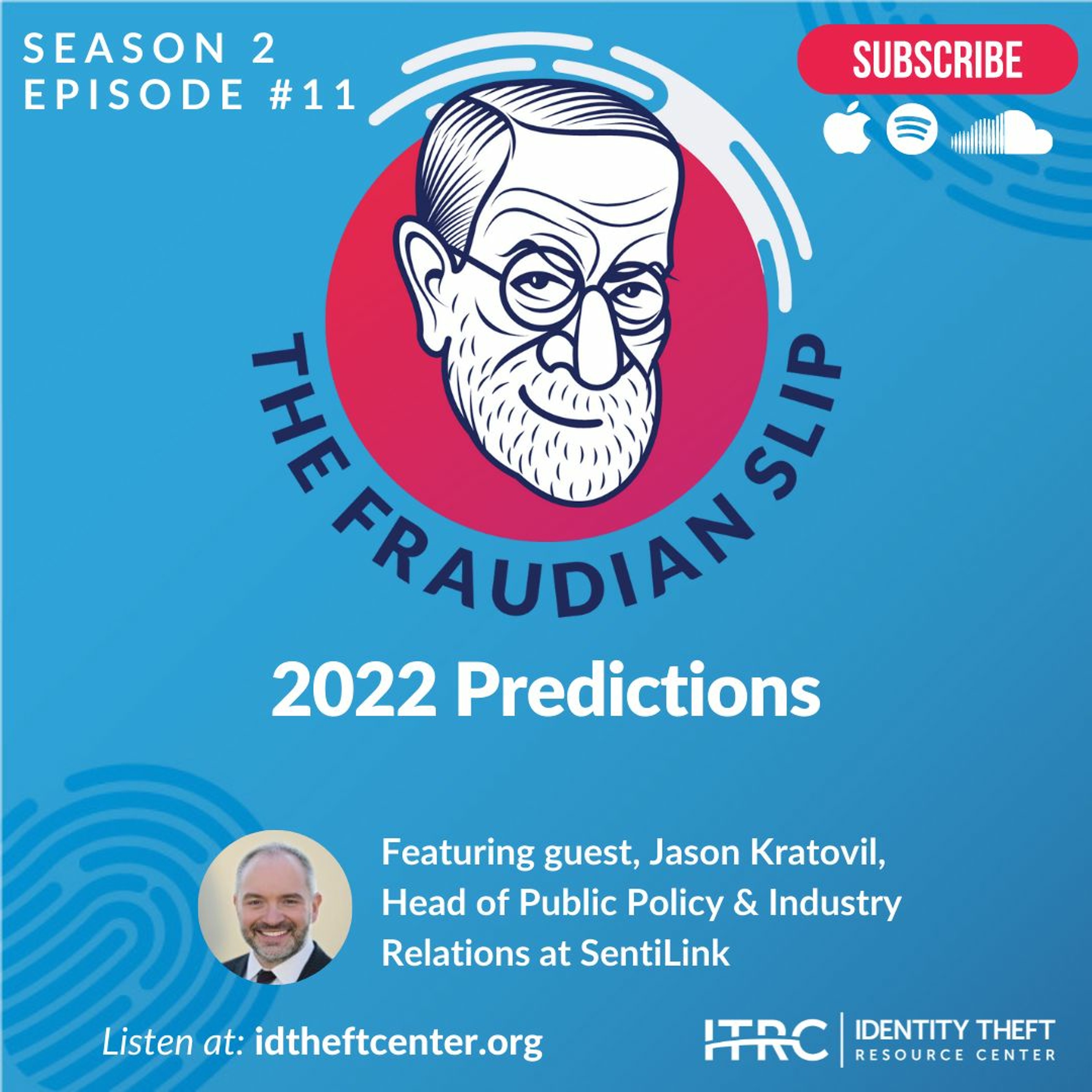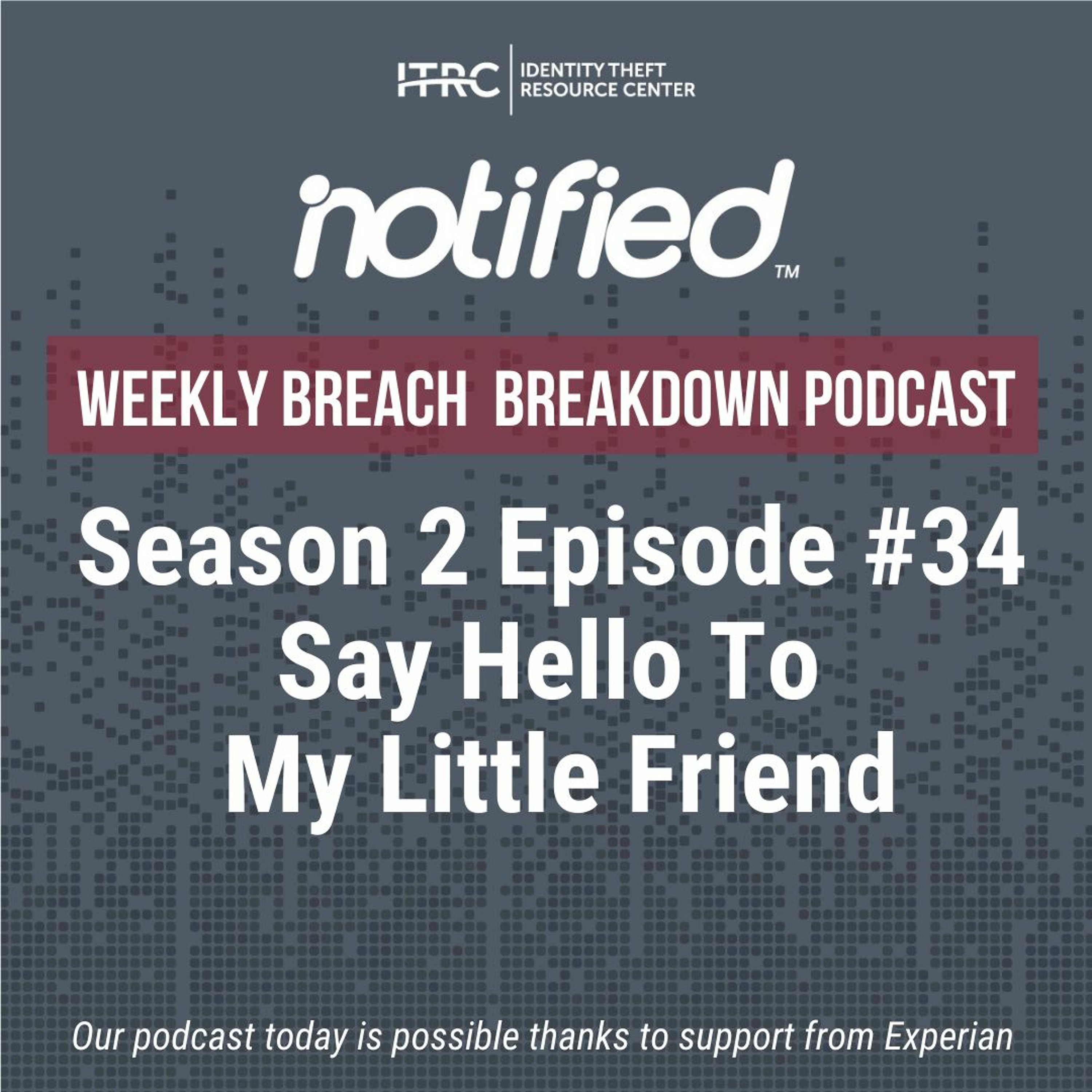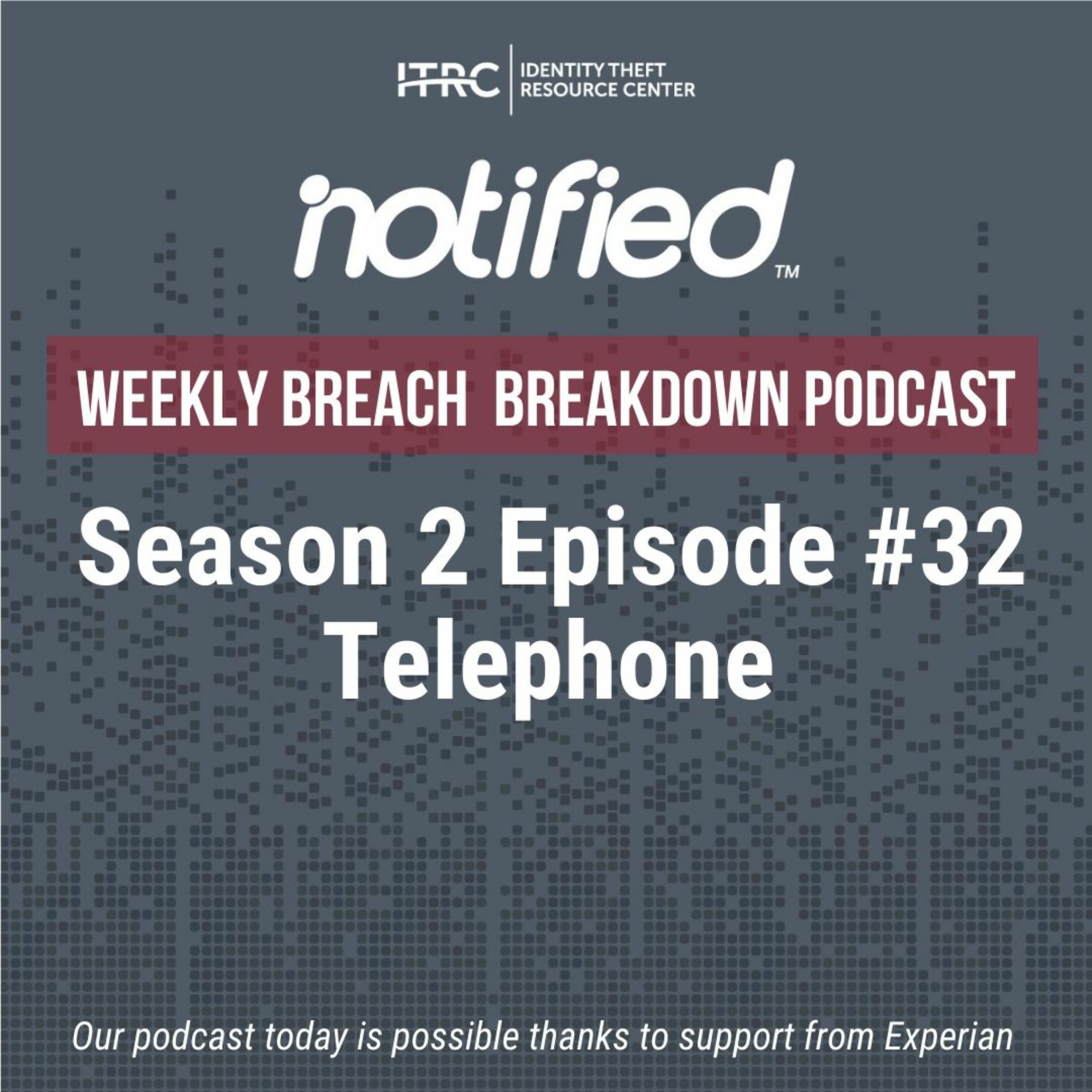Helping us explore the murky world of identity fraud is Eva Velasquez, president and CEO of the ITRC, and Naftali Harris, Co-Founder and CEO of SentiLink, a company that helps businesses reduce identity-related fraud.
Show Transcript
SentiLink talks with the ITRC in the newest Fraudian Slip podcast about the unprecedented levels of identity fraud as people have applied for government benefits during COVID-19
- For the first time since the reports of unemployment identity fraud began to spike in March 2020, the number of cases has steadily declined. So have the number of fraudulent stimulus cases linked to identity fraud.
- However, June was the month the Identity Theft Resource Center (ITRC) saw 2021’s unemployment identity fraud numbers surpass all of 2020.
- The ITRC sat down with SentiLink, a company that helps businesses reduce identity-related fraud, to discuss COVID-19 fraud, what we learned, emerging threats and much more. Listen to this week’s episode of The Fraudian Slip.
- You can learn more about unemployment identity fraud and other topics discussed in the podcast, and how to protect yourself from identity crimes by visiting the ITRC’s website.
- If you think you are the victim of an identity crime or your identity has been compromised, you can call us, chat live online, send an email or leave a voicemail for an expert advisor to get advice on how to respond. Just visit www.idtheftcenter.org to get started.
Below is a transcript of our podcast with special guest Naftali Harris, Co-Founder and CEO of SentiLink
Welcome to The Fraudian Slip, the Identity Theft Resource Center’s (ITRC) podcast, where we talk about all-things identity compromise, crime and fraud that impact people and businesses.
This month, July, we will look deeper into an issue that has dominated news headlines – unemployment identity fraud – and frustrated hundreds of thousands of identity crime victims. We are talking about the unprecedented levels of identity fraud that we have seen during the pandemic as people applied for various government benefits – ranging from unemployment benefits to small business loans.
Let’s start with some good news. For the first time since reports of unemployment identity fraud emerged in early 2020, the number of fraud cases began a steady decline in May. The number of fraudulent stimulus cases linked to identity fraud and small business administration loans also drops a little each month. Ironically, June was the month when the number of unemployment identity fraud cases reported to the ITRC in 2021 surpassed all of 2020.
The ITRC has talked a lot on earlier episodes of this podcast about how the unemployment identity fraud occurred and the impact on people denied benefits as a result. However, we have not focused much on what we have learned about what happened after the money was stolen. Where did it go? What other actions can we take now to prevent more fraud in the future based on what we have learned?
Helping us explore the murky world of identity fraud is Eva Velasquez, president and CEO of the ITRC, and Naftali Harris, Co-Founder and CEO of SentiLink, a company that helps businesses reduce identity-related fraud.
We talked with Naftali Harris about the following:
- What SentiLink does.
- What happened to the money lost, and what we have learned from the pandemic fraud.
- Friction in transactions – positive and negative.
- Any potential emerging threats.
We talked with Eva Velasquez about the following:
- The impacts of identity fraud and the denial of benefits.
- Friction in transactions – positive and negative.
- What consumers can do to prevent/mitigate identity fraud now.
You can learn more about unemployment identity fraud as well as get help if you have been the victim of an identity crime by visiting the ITRC’s website at www.idtheftcenter.org. While you are there, sign up for our emails that alert you to the latest scams, monthly data breach updates, and tips to protect your identity.
Be sure and join us next week for our Weekly Breach Breakdown podcast and next month for another episode of The Fraudian Slip.
Listen On
Also In Season 2
-

The Fraudian Slip Podcast ITRC - 2022 Predictions - Special Guest SentiLink
Welcome to the Fraudian Slip, the Identity Theft Resource Center’s podcast where -

The Fraudian Slip Podcast ITRC -Retail Therapy - Special Guest Merchant Risk Council
Welcome to The Fraudian Slip, the Identity Theft Resource Center’s (ITRC) podcas -

Say Hello To My Little Friend - The Weekly Breach Breakdown Podcast by ITRC - S2E34
Welcome to the Identity Theft Resource Center’s (ITRC) Weekly Breach Breakdown f -

The Weekly Breach Breakdown Podcast by ITRC - Telephone - S2E32
Welcome to the Identity Theft Resource Center’s Weekly Breach Breakdown for Octo
